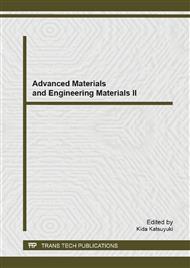p.716
p.720
p.725
p.729
p.733
p.737
p.741
p.745
p.750
Analysis on the Incompleteness of Moral Hazard Model
Abstract:
Moral hazard model is an important model in contract design. Starting from the result set of the moral hazard contract, this paper analyzes the incompleteness of moral hazard contract which is with great practical significance. Our results show that if the contracting parties can’t reach a consensus on the possible outcomes of the future (i.e. the result set of contract), some efficiency contract (or agreement) may not be realized.
Info:
Periodical:
Pages:
733-736
DOI:
Citation:
Online since:
April 2013
Authors:
Keywords:
Price:
Сopyright:
© 2013 Trans Tech Publications Ltd. All Rights Reserved
Share:
Citation:


